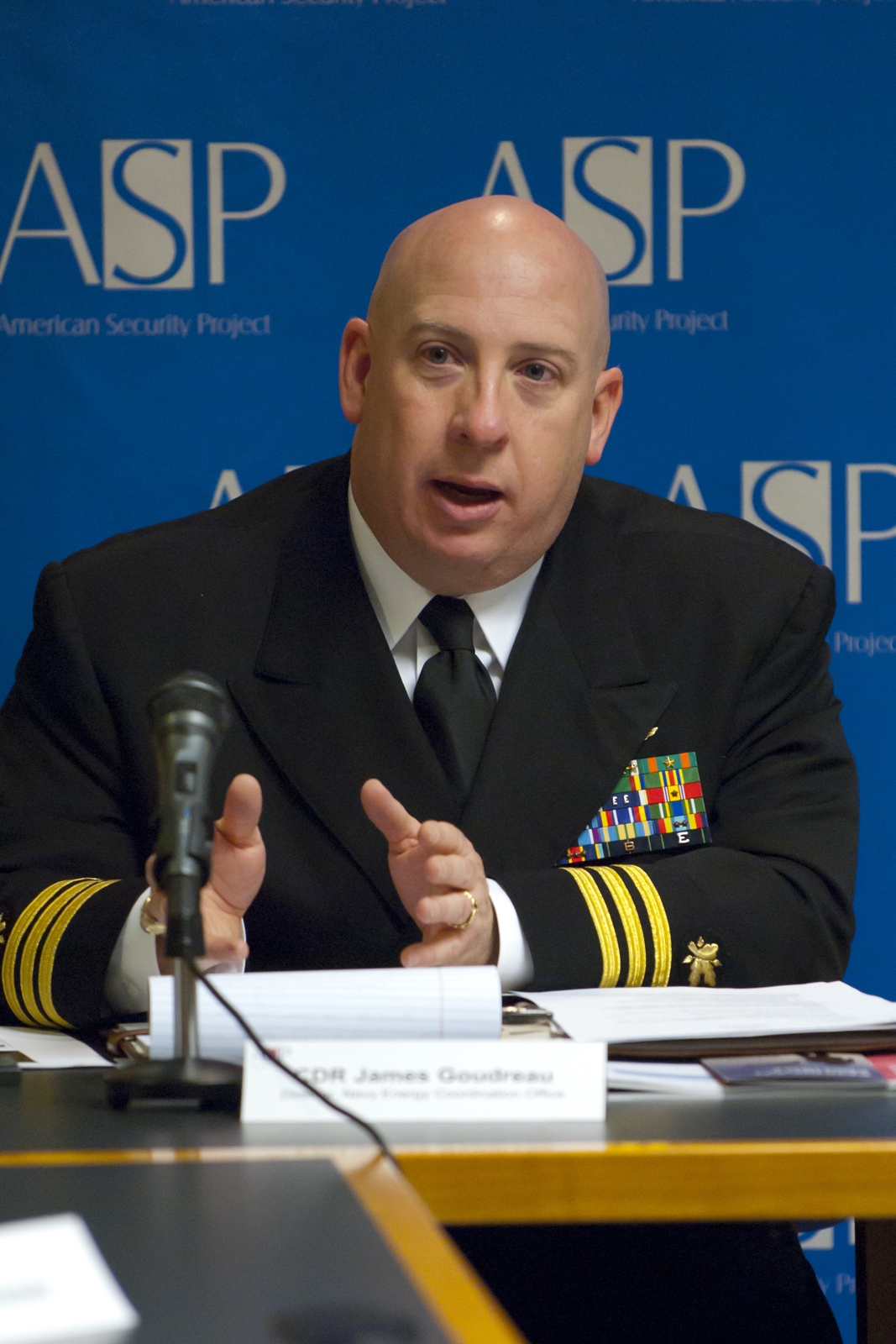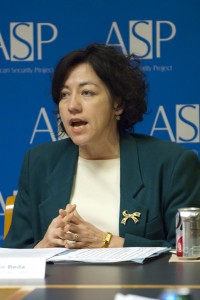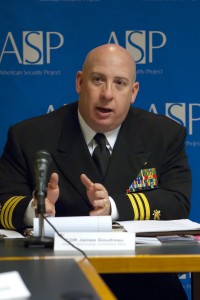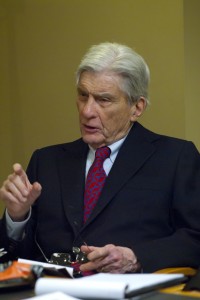
ASP Briefing: “Biofuels for National Security”
Podcast: Play in new window | Download
Subscribe: Apple Podcasts | RSS
On Thursday, March 1, the American Security Project hosted a briefing, “Biofuels for National Security: Air Force and Navy Progress on Renewable Fuels”
The event was with Commander James Goudreau, Director in the Navy Energy Coordination Office and Carol Ann Beda, Director of Energy Policy in the Office of the Assistant Secretary of the Air Force for Energy. The briefing was chaired by ASP Senior Fellow for Energy and Climate, Andrew Holland.
LISTEN TO THE PODCAST OF THE EVENT
HERE
 Both speakers underlined that the move away from petroleum-based fuels was not at all political or about being “green”. Instead, a move to biofuels was all about increasing mission combat capability. There were two common, and related, reasons cited for moving towards biofuels: budgetary and security.
Both speakers underlined that the move away from petroleum-based fuels was not at all political or about being “green”. Instead, a move to biofuels was all about increasing mission combat capability. There were two common, and related, reasons cited for moving towards biofuels: budgetary and security.
First, a depe ndence on single source of energy – oil – without competition leaves each service at the whims of commodity markets. Price spikes can upset budgeting: for example, in the current fiscal year, the price per barrel has been $38 more than budgeted, and this has increased the Navy’s fuel bill by more than $1 billion so far this year.
ndence on single source of energy – oil – without competition leaves each service at the whims of commodity markets. Price spikes can upset budgeting: for example, in the current fiscal year, the price per barrel has been $38 more than budgeted, and this has increased the Navy’s fuel bill by more than $1 billion so far this year.
The second reason cited to move towards biofuels is certainty of supply; i.e. energy security.In a world with growing demand for oil coupled with insecure oil suppliers, it is very important for the services to be foresighted in ensuring that they will always have available sources of fuel, regardless of geopolitical circumstances.
Commander Goudreau said that “The Navy has always led the way” on energy changes, whether to steam, oil, or nuclear. The change to bio-based fuels is another example of how the Navy’s change will help the rest of the country move towards alternative fuels. Ms. Beda agreed that this change will be very important for the rest of the economy, citing the very high pent-up demand from the airlines for a drop-in biofuel replacement.In a world with growing demand for oil coupled with insecure oil suppliers, it is very important for the services to be foresighted in ensuring that they will always have available sources of fuel, regardless of geopolitical circumstances.

ASP was honored to have former Senator John Warner (R-VA), the former Secretary of the Navy and Chairman of the Senate Armed Services Committee in attendance. Senator Warner said that the presentations made clear that the technology was developing rapidly, and had proven its importance to national security. However, he expressed concern that Congress’s short termism could undercut the ability of the military to support the biofuel industry.
ASP’s event was successful in showing how quickly the technology on biofuels is advancing. Today, the technology exists for drop-in replacements of traditional oil, though not at a cost competitive rate. As biofuel costs come down – and petroleum costs continue to be high and unpredictable – the military can help lead the way into this new source of fuel.






[…] YOU CAN FIND OUT ABOUT THIS EVENT (INCLUDING THE PODCAST) HERE […]
[…] previously held a briefing on “Biofuels for National Security” and also published an associated fact sheet, available here, on the military’s interest in […]
[…] as expensive as petroleum fuels. However, those prices are rapidly going down. In a March event “Biofuels for National Security” here at ASP, the Navy and Air Force said that they expect biofuels to be competitive at cost […]
[…] by 2017. This means that biofuels could quickly develop as an alternative to oil. At ASP’s “Biofuels for National Security” event on March 1, Commander Goudreau of the Navy echoed that statement, saying said that […]
[…] by 2017. This means that biofuels could quickly develop as an alternative to oil. At ASP’s “Biofuels for National Security” event on March 1, Commander Goudreau of the Navy echoed that statement, saying said that […]